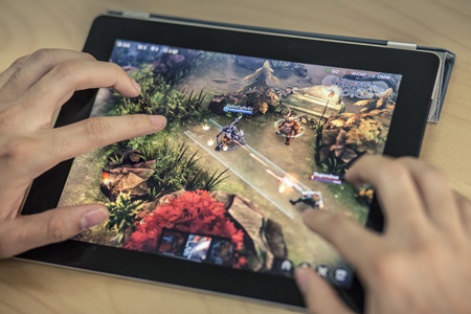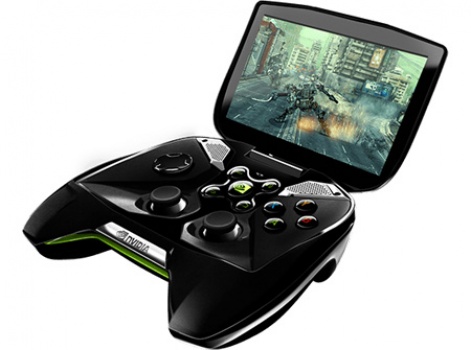Inspired in part by my moving back to iOS from Android - I now have an iPhone 6 Plus - I want to take stock of where Android is right now.
I write about mobile almost exclusively, and since I also cover iOS pretty much exclusively, I decided it had stopped making sense to use Android on a daily basis.
More generally, though, there's really no better time to own an Android device. The hardware is impressive in design, and particularly offers great value at low price points. And while still not as nice and clean as iOS, as an OS Android looks nicer than ever.
Plus, there's some things that Android can do that iOS cannot, with the various launchers, widgets, and external access tools. And more iOS hardware and software features are in Android devices now.
Also, if you want a phone that's way too big, you have options that make the iPhone 6 Plus look tiny.
All about games
But here's the thing for gaming: Android is perpetually behind iOS in the minds of enthusiasts.
Most of the new releases are for iOS, with cross-platform releases at launch still not being a guarantee. So for the person who considers gaming important, they need iOS.

However, for the person who just wants to have a few fun games to play on their phone or tablet, well, there's plenty of choices on Android. It doesn't lack quality games or people to play them – it's just a second option for the person who cares about them.
Android is perpetually behind iOS in the minds of enthusiasts.
And that's the problem – the Android gamer is always going to be someone who's either just not that dedicated to gaming – and thus probably won't buy as many games or be likely to spend as much in in-app purchases.
Or, someone's who's dedicated to the point that they will pirate apps and play emulators. iOS exists in that happy medium – dedicated users more likely to spend money on apps. It makes sense logically, and the numbers seem to back that up.
The problem then becomes for developers that Android requires more work – in part because there's so many hardware and software configurations to deal with – and for lesser reward on a per user basis.
There's so many more users, but getting those users, especially for developers who don't have the resources that larger developers and publishers do, is a real problem. Android can pay off – but it's such a difficult market still that a developer can afford to ignore it in favor of iOS, or even other platforms.
And I don't know if that ever changes, because I hear too many horror stories from developers who are successful elsewhere.
Opportunity knocks
But here's the thing: iOS is far from a perfect platform and market, and that's what makes Android potentially so appealing. There's still opportunity where Apple isn't yet going.
Premium games still don't really have a good space on iOS.

I'd love to see Google carve out a Steam-like space for premium games, that can help curate and feature big experiences - sell Android as a platform to gaming enthusiasts. Apple is the enthusiast's platform not by choice but by a continuing tradition.
Another big opportunity that exists for Android is still in the TV space. Apple did the American football equivalent of punting from the opponent's 45 yard line on 4th and long. Maybe Apple doesn't gain much value from giving Android manufacturers another chance to establish a serious foothold in the TV gaming market yet, but it might be foolish for them to go for it now based on things like gamepad adoption. But giving up on that opportunity still feels like a wasted opportunity with little to show for it.
Apple may be the leader, but it's not invincible.
While Android is starting deep within its own territory (to continue the American football metaphor), there's no reason why it can't gain field position on Apple. We're nearing a sweet spot for microconsoles: where the big consoles are still at a luxury price, but at where mobile hardware can power some impressive games.
EA got a version of Battlefield 4 running on an iPad Air 2. Apple certainly makes powerful mobile chips, but in the microconsole segment, unfettered by concerns like battery life, do you dare count out Nvidia to make a gaming beast for a low cost?
Game on?
Of course, it comes down to software, and it may require Google and other partners making it worth developers' while financially to ensure that they make games that support Android TV devices and microconsoles, because it's still an unproven risk, and maybe that's why Apple's not going for it - but it's worth getting in while Apple's not.
However, I also like the idea of the Fire Stick from Amazon being powerful enough (while still cheap) to run some casual games. Casual-friendly games are where so much growth has come from, and Amazon's putting them on a dirt-cheap streaming stick.
But the thing is, microconsoles have been all potential for a couple years now, since the Ouya first made Kickstarter splashes and people got the idea "Dude, what if the Apple TV could play games?"
Certainly, the question of when Android would match iOS has always been asked, and maybe Android can't ever live up to its potential for developers, but I'm not convinced that the fight has been lost. Apple may be the leader, but it's not invincible.






















